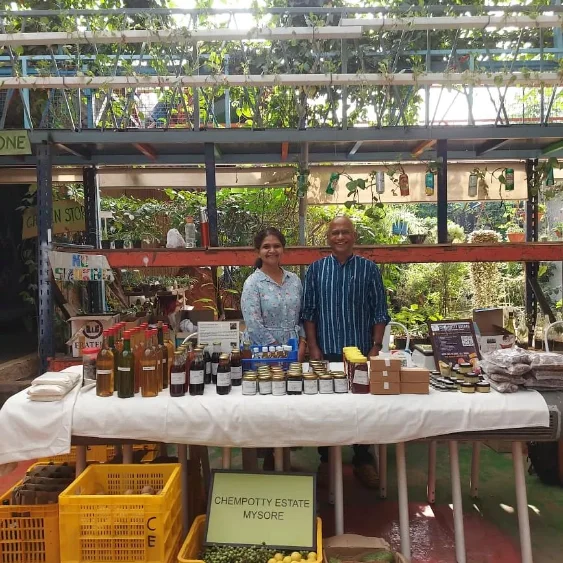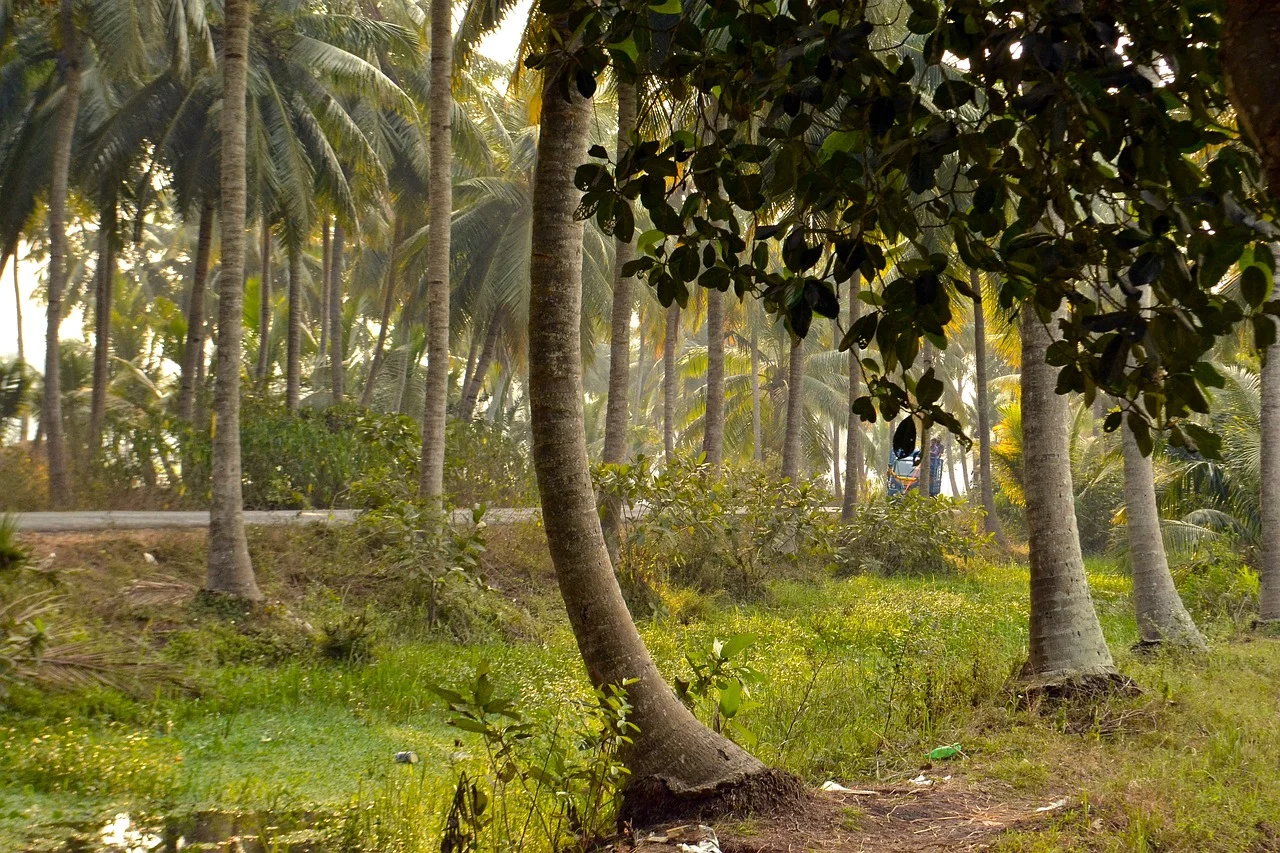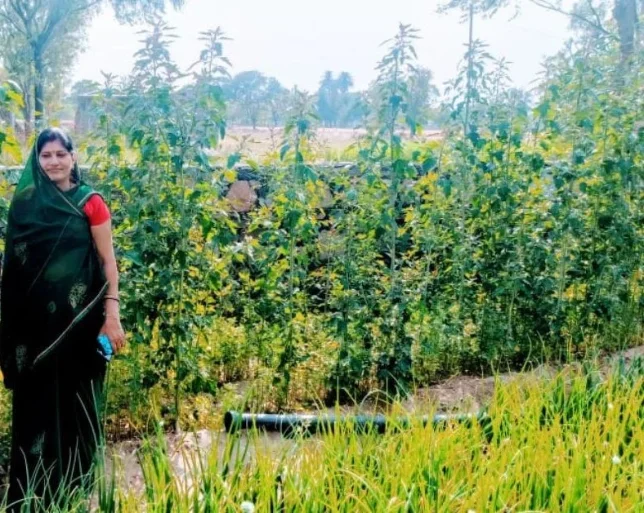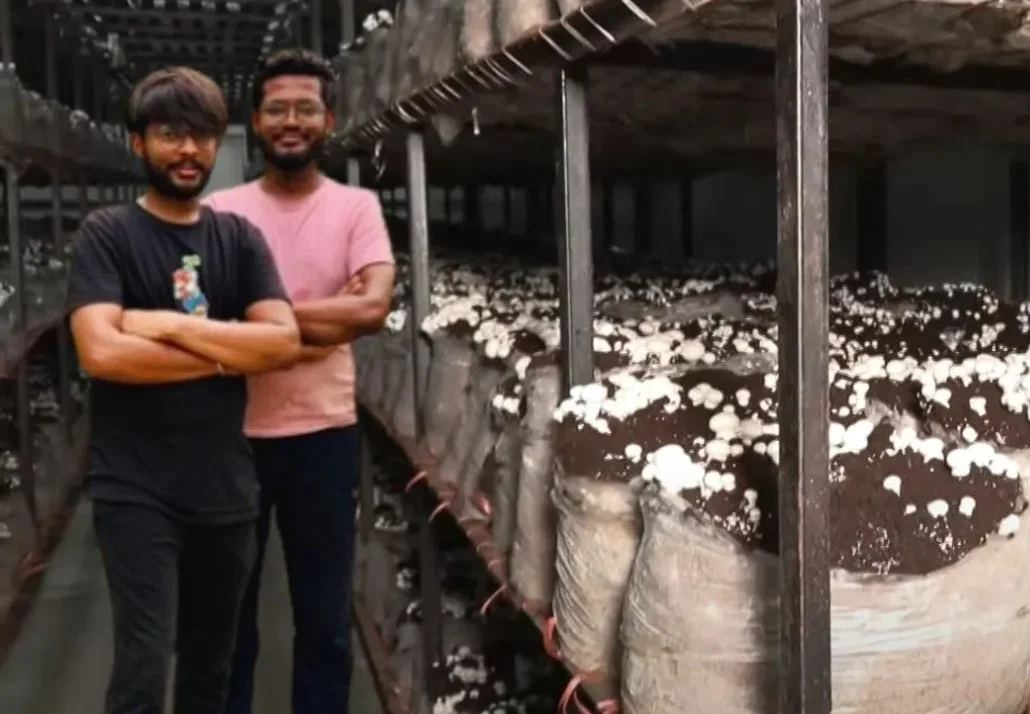Thankachan Chempotty has been involved in farming since he was a young boy. Born in Thekkumkutty, Kozhikode, Kerala, agriculture has been a constant part of his life, even as he worked in various corporations for many years.
Reflecting on his upbringing, Thankachan says, “I come from a family deeply rooted in agriculture. During my childhood, we used to walk long distances to school every day and then spend our after-school hours working in the fields. It wasn’t an easy life, but I believe that farming played a crucial role in shaping my character. It provided me with the physical endurance and foresight needed.”
Thankachan manages to balance his role as a consultant for various FMCG companies with his passion for organic farming. His thriving organic farm, named Chempotty Estate, spans 22 acres in Nanjangud.

Expressing his love for the farm, the 58-year-old shares, “Chempotty Estate is my favorite place, and my wife, Jessy, is just as dedicated to farming as I am. We cultivate a variety of crops including coconut, arecanut, nutmeg, cacao, and various fruit trees, totaling around 17,000 trees and plants on our estate.”
In addition to cultivation, Thankachan emphasizes, “We also create value-added products from our organic produce with the goal of minimizing wastage and enhancing the market value of our crops.”
Currently, he generates an annual revenue of approximately Rs 35 lakh from his organic farm.

In 2005, Thankachan embarked on the journey of converting his 22-acre plot from a chemically treated farm to an organic one. Confident in his ability to make the transformation, he shares, “The land was previously used for cultivating crops like vanilla, coconut, chikku, using various chemicals and pesticides. Despite that, I believed that with sufficient effort and patience, I could turn it into an organic farm.”
It took him about four to five years to realize his vision. Describing his approach, Thankachan says, “I adopted Subhash Palekar’s natural farming method, utilizing jeevamrut, a mixture made from cow urine, dung, and other natural ingredients. This significantly improved the soil quality. Additionally, I planted around 450 moringa trees and approximately 500 neem trees, contributing to enhanced fertility.”

Once the land was prepared, Thankachan opted for a diverse approach, implementing a four-layer method for cultivating various cash crops. Describing the arrangement, he explains, “The first layer is dedicated to coconut trees, the second layer for arecanut trees, and the third layer for cacao and other fruit trees such as guava, mangoes, and more. The fourth layer is where we’ve planted ginger, turmeric, tapioca, sweet potatoes, and the like.”
Currently, the farm boasts a significant number of mature trees. Thankachan elaborates, “We have approximately a thousand coconut trees, aged over 30 years, around 4,000 six-year-old areca-nut trees, and 3,500 eight-year-old cacao plants.”
In addition to these, the farm also nurtures various fruit trees, including cherries, passion fruit, jackfruit, soursop, and a variety of others.
Thankachan points out that although arecanut and coconut are lucrative, it’s his cacao plants that truly captivate him. Sharing his perspective, he states, “Cacao is a crop with greater potential for leverage.”

Elaborating on the financial aspect, he notes, “Normally, people sell raw cacao seeds for Rs 45-60 per kg. However, if you engage in the fermentation processing, the yield becomes about four to five times more profitable than selling them as seeds.” He underscores that he consistently sells cacao in its fermented or dried form.
The organic yield from Chempotty Estate is frequently transformed into various value-added products, boosting revenue and minimizing waste. Thankachan credits his wife Jessy for the creative ingenuity behind these endeavors.
Having worked as a teacher for more than three decades, Jessy made the decision to leave her full-time job in 2020 to dedicate more time to their farm. Expressing her philosophy, she shares, “I’ve always been averse to wasting anything that grows on our farm. Consequently, I make an effort to brainstorm and come up with ideas for creating value-added products from everything.”

She points out a common practice where only cacao beans are utilized, and the leftover fruit residue goes to waste as run-off. Explaining her initiative, she says, “I wanted to find a purpose for the juice instead of letting it go to waste. The juice was delicious but had a short shelf life. Through some experimentation, I created a cacao syrup or dip. It’s sweet with slightly tangy notes, and the addition of green chilli powder and salt gives it a spicy kick. You can enjoy it on its own, drizzle it over bread, chapati, puri, and cakes, use it as a flavor booster in smoothies and shakes, or as a seasoning on salads.” The 56-year-old adds that it complements both vegetarian and non-vegetarian cuisines.
Jessy achieved success in crafting various products from cacao, including wine, vinegar, and even laddus.
Highlighting the impact of value-added items, Thankachan notes, “Through these products, we’ve expanded our customer base significantly, and it has proven to be very profitable. From cacao alone, we generate an annual revenue of around Rs 10 lakh.”
In addition to cacao-based products, Jessy mentions, “We also utilize other fruits to create juices, wines, jams, marmalades, pickles, chutneys, and more.” She adds that among all the products, the wines have emerged as the fastest-selling.
Amitha D’costa, a loyal customer of Chempotty Estate, shares her experience, saying, “Previously, we used to purchase fruits and vegetables from the market. However, once we switched to buying from them, we could immediately notice the difference. Their produce is incredibly fresh and organic, and the taste is exceptional. I’ve been a weekly customer, and I’ve also tried their cacao laddus and beans, which were excellent.”
All the products are available for purchase on their website and through Farmizen, an online platform specializing in organic products directly sourced from local farmers. Additionally, customers have the option to buy products directly from Chempotty Estate.









